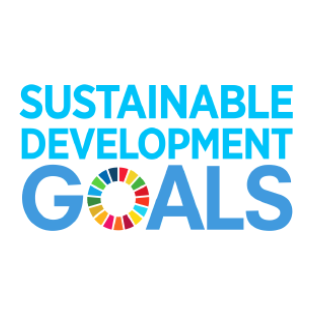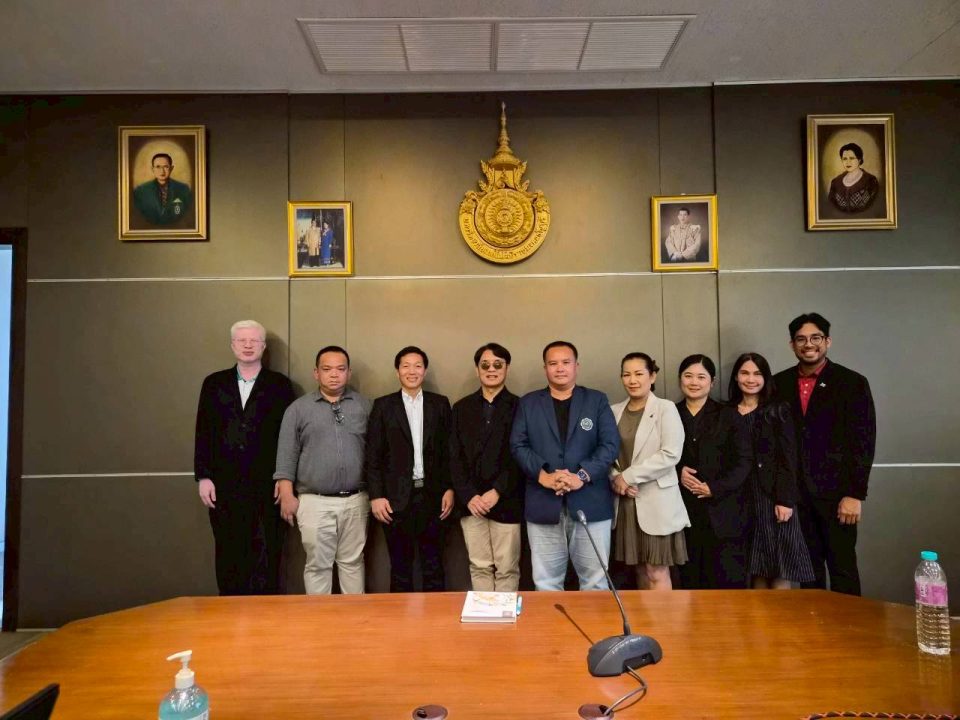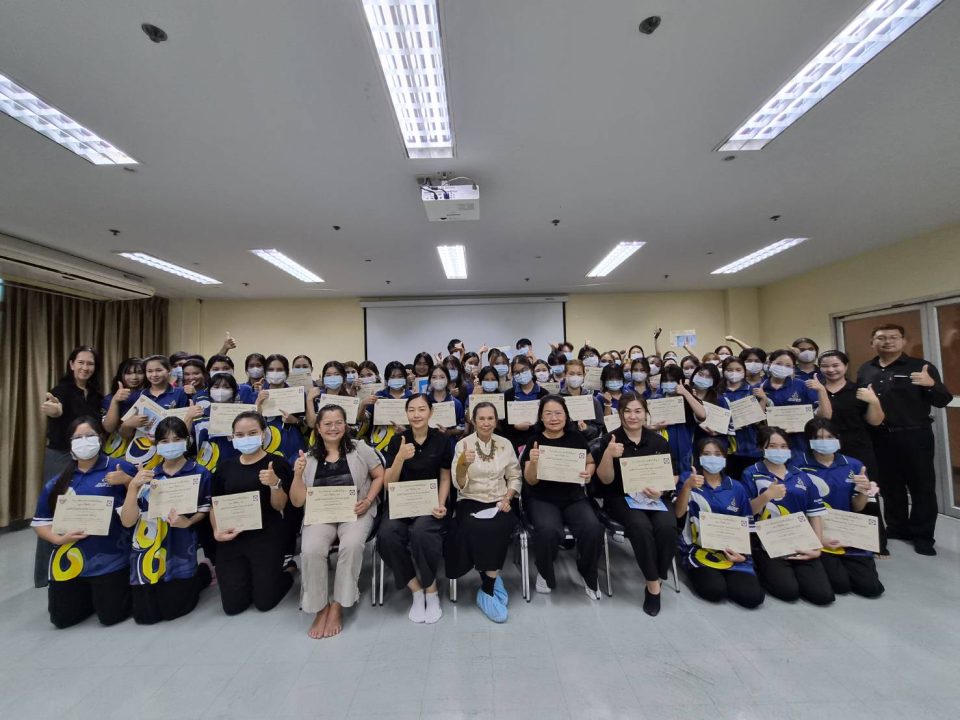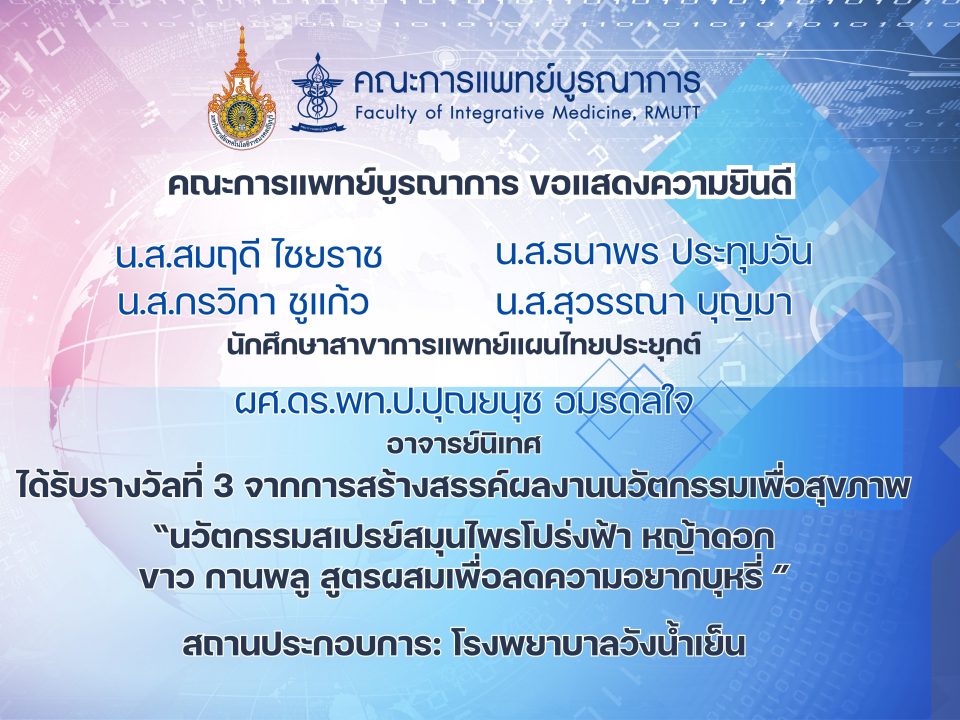พิธีมอบเสื้อกาวน์ นักศึกษาชั้นปีที่ 3 คณะการแพทย์บูรณาการ ประจำปีการศึกษา 2568
07/07/2025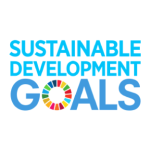
Awareness of SDG 3: Good Health and Well-being
07/07/20251. Policy Statement
The Faculty of Integrative Medicine is committed to advancing the United Nations Sustainable Development Goals (SDGs) through its core missions of education, research, community engagement, and innovation. The faculty integrates sustainability principles into academic strategies, operations, and stakeholder collaborations, with a particular emphasis on SDG 3: Good Health and Well-being, while supporting related goals to ensure holistic, inclusive, and sustainable development.
2. Objectives
- To embed SDGs into the strategic planning and operational framework of the faculty.
- To align teaching, research, and academic services with key SDG targets.
- To foster awareness and action on sustainability among students, staff, and communities.
- To promote innovation in health products and practices that support environmental and societal well-being.
- To build multi-sectoral partnerships that amplify the faculty’s impact on sustainable development.
3. SDG Prioritization
While acknowledging the interdependence of all 17 SDGs, the Faculty has prioritized the following:
Primary Goal
- SDG 3: Good Health and Well-being – Ensure healthy lives and promote well-being for all at all ages through integrative medicine approaches.
Supporting Goals
- SDG 4: Quality Education – Provide equitable, inclusive, and high-quality education in integrative medicine.
- SDG 9: Industry, Innovation, and Infrastructure – Foster research and innovation in health product development and traditional medicine technologies.
- SDG 12: Responsible Consumption and Production – Promote sustainable use of natural resources in health product innovation.
- SDG 13: Climate Action – Encourage environmental responsibility in academic operations and research.
- SDG 17: Partnerships for the Goals – Strengthen collaborations with national and international institutions, industry partners, and local communities.
4. Implementation Strategies
4.1 Education
- Integrate SDG-related content into the curriculum at undergraduate and graduate levels.
- Promote interdisciplinary and problem-based learning that addresses real-world sustainability challenges.
4.2 Research and Innovation
- Support research projects aligned with SDG priorities, especially those addressing public health, traditional medicine, and environmental sustainability.
- Incentivize innovation and knowledge transfer in sustainable health products and services.
4.3 Community Engagement
- Implement outreach programs that empower communities through sustainable health practices.
- Collaborate with local and regional partners to co-create solutions for health and environmental resilience.
4.4 Operations and Governance
- Apply green practices in faculty operations, including energy efficiency, waste management, and eco-friendly procurement.
- Monitor and evaluate SDG progress using clear metrics and annual reporting mechanisms.
5. Monitoring and Evaluation
The Faculty will establish an internal SDGs Implementation Committee to:
- Track the integration of SDGs into faculty initiatives.
- Report progress to the university’s central SDG coordination body.
- Review and refine strategies annually based on stakeholder feedback and performance indicators.
6. Stakeholder Engagement
The policy encourages active participation from:
- Faculty members and researchers
- Students and alumni
- Local and international academic institutions
- Governmental and non-governmental organizations
- Health and wellness industry partners
- Community-based organizations
7. Review Cycle
This policy shall be reviewed every three years or as required by national or institutional changes in SDG-related frameworks.
Approved by:
SDGs Comittee, Faculty of Integrative Medicine
Rajamangala University of Technology Thanyaburi


